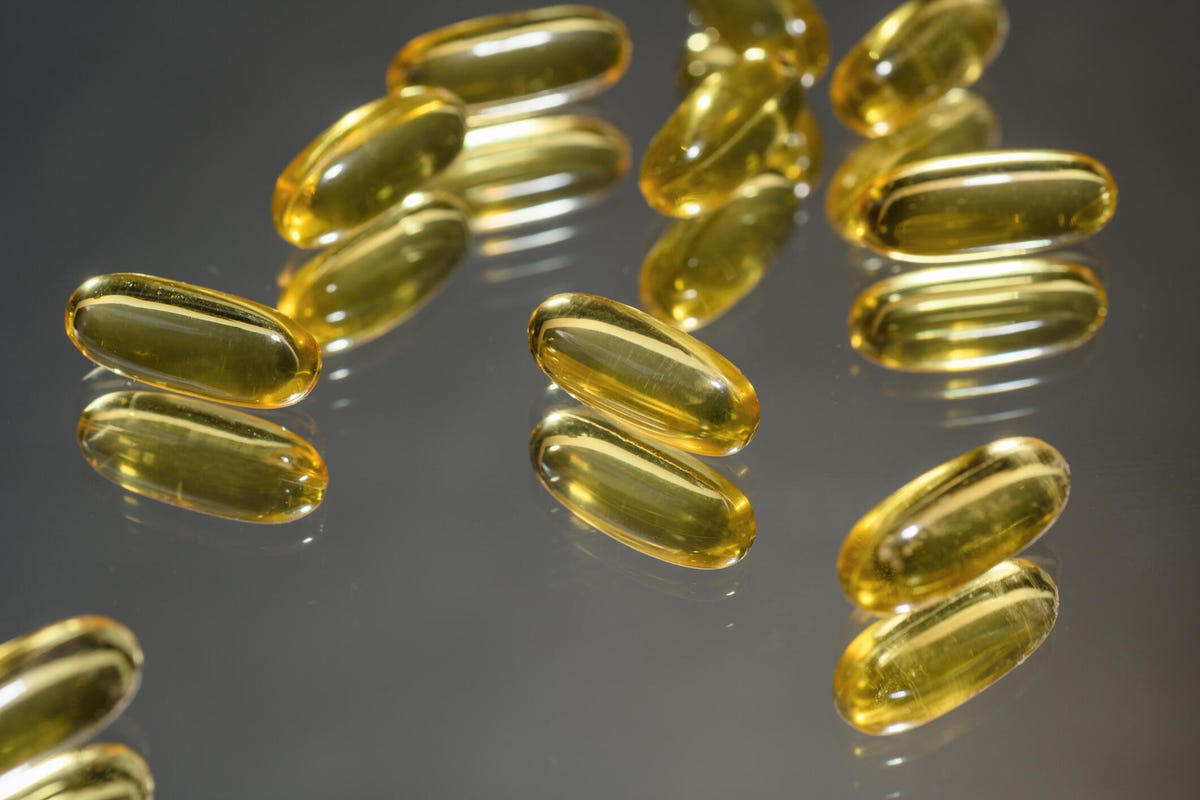Collagen Supplements: Benefits, Downsides, and How to Add Them to Your Diet




When it comes to anti-aging conversations, collagen always comes up. Found in skin, hair, and nails, collagen provides structure and support throughout the body. That’s why many consider taking collagen supplements to maintain their youthful appearance as they age. Do collagen supplements really work that way?
Several studies have shown that taking collagen supplements daily or adding collagen-rich foods to your diet offers several benefits and really helps improve the health of your skin, joints, hair, and bones. There are a few things you should know about collagen and collagen products before incorporating them into your daily wellness routine.
Below you’ll find a comprehensive explanation of collagen, including what it is, where to find it, and how it can benefit you — plus the downsides you should be aware of. Just remember to focus on the best food sources for other vitamins and minerals that you need.
What is collagen?
Before we discuss its benefits, what is collagen? In short, collagen is the most abundant protein in the human body and accounts for one-third of all proteins. It serves as a connective building block that holds your muscles, tendons, ligaments, bones, and skin together. It serves as a building block that holds your muscles, tendons, ligaments, bones, and skin together and promotes healthy joints and connective tissues.
There are nearly 30 known types of collagenbut type I is the most common (it exists in all connective tissues and makes up 90% of all collagen in the body). Types II, III, and IV are also common and are found in various parts of the body, including your joints, kidneys, ears, and blood vessels.
All of this brings us to another pertinent question: What is collagen good for? Your body naturally produces collagen by combining multiple amino acids (such as proline and glycine) with zinc, vitamin C, and copper. As you age, production slows down and the collagen in your body is broken down faster.
When that happens, you may notice that your skin becomes wrinkled, your tendons and ligaments become less flexible, and your muscles shrink. To prevent or delay these effects, some people make up for the loss in their bodies by eating collagen-rich foods or supplementing with collagen.
Adding Collagen to Your Diet

If you want to boost your collagen production, make sure your diet includes foods with these essential ingredients:
- Bone broth
- Fish and shellfish
- Chicken
- Pigskin
- Eggs
- Beans
- Citrus
- Peppers
- Nuts
Eating a balanced diet with a combination of these foods is the best way to increase collagen protein in your body. You may also want to consider taking collagen supplements (usually collagen powder or capsules) if you are not getting enough collagen through your diet alone.
For best results, experts recommend using a collagen supplement an hour before exercise, but always check the label and consult your doctor before starting any new wellness routine.
Benefits of Collagen
Now that we’ve covered the basics, let’s dive deeper into the benefits of collagen supplementation.
Builds stronger bones
Bones are packed with collagen, but as you age, the protein begins to break down — and so does your bone health — leading to a decrease in bone strength and density. By incorporating collagen supplements into your diet, you may be able to prevent any bone loss and reduce the risk of bone problems, such as osteoporosis and bone fractures.
Reduces joint pain
Collagen also works with cartilage to keep your joints functioning properly. As it wears down over the years, it can lead to stiff and painful joints and a higher risk of osteoarthritis. The good news is that taking collagen supplements has been found to reduce joint pain in physically active people. It can also serve as a painkiller for people with existing joint problems.
Improves the skin
Your skin also contains collagen, which gives it elasticity and hydration when you’re young. But as you age, your skin becomes saggy and wrinkly due to decreasing collagen levels. Interestingly enough, studies have shown that adding more collagen to your diet can improve skin elasticity, firmness and hydration, visibly reducing the effects of aging.

Promotes healthy hair
Collagen is made with some of the same amino acids that are used to make keratin, the protein that makes up your hair. Because of this connection, there is what evidence that consuming more collagen can improve the health of your hair by promoting growth, reducing thinning, and slowing graying.
Adds muscle mass
Muscle tissue consists of up to 10% collagen. When the collagen in your body begins to break down, you can lose muscle mass and possibly develop a condition called sarcopenia (age-related muscle loss). Fortunately, studies have shown that taking a collagen supplement, along with increased protein intake and regular strength training, can help people with sarcopenia regain their muscle strength.
Disadvantages of collagen supplements
In addition to these benefits, there are also some disadvantages to collagen supplements. Keep these in mind before incorporating them into your daily routine.
They contain animal products (and sometimes allergens)
Traditional collagen supplements, and all dietary supplements in general, are made from animal products, so they are not suitable if you are following a plant-based diet. There are some vegan collagen options on the market, but it’s unclear how they compare to options made from animal products. If you have food allergies, also read the label on your collagen supplements thoroughly. In some cases, they may contain common allergens, such as fish or eggs.
Regulation is a grey area
Collagen supplements are regulated by the government as a food (not a drug). US Food and Drug Administrationmeaning that their ingredients and production are not controlled by an official governing body. These products are not subject to the same regulations and strict approval process as pharmaceutical products, so it can be difficult to know the quality, purity, and safety of the ingredients.
Effectiveness studies are limited
While there have been studies done on the effectiveness of collagen (many of which we’ve cited above), more research needs to be done. Also, some of the existing studies are financed by companies that produce collagen supplements, which may raise ethical questions about bias.
Similar supplements to collagen

It is difficult to find other supplements that mimic the effects of collagen, because its amino acid composition is different from that of other proteins. You can try increasing your intake of glycine and proline, the main amino acids involved in collagen synthesis. They are most commonly found in protein-rich foods such as meat and poultry, but are also available in supplement form.
If you’re primarily interested in how collagen can help improve your hair, nails, and skin, you may want to consider the following: keratin or biotinwhich are commonly available in the form of shampoos and salon treatments, but are also sold as dietary supplements. Biotin is also found in certain foods, including legumes, egg yolks, nuts, and avocados.
For more advice on supplements, here are five fitness supplements that are proven to work. Moreover, Check out these three alternatives to melatonin for a better night’s sleep without drowsiness the next day.




